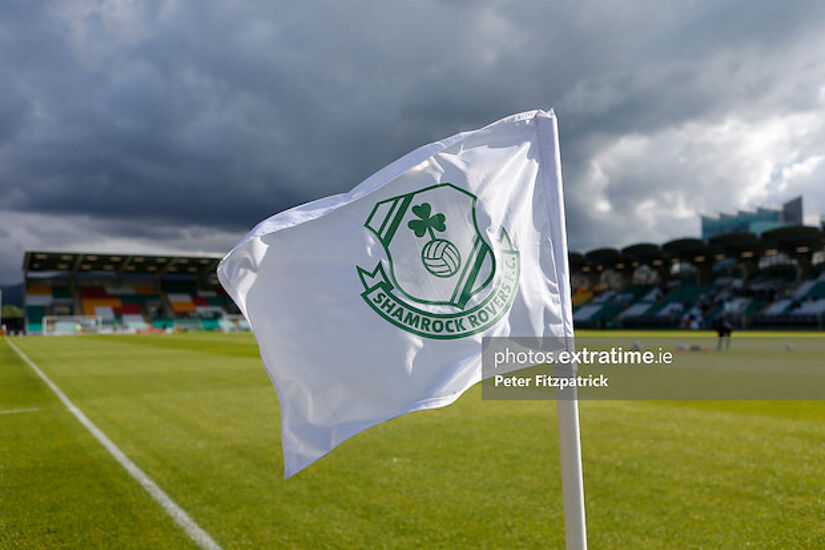How Gambling Affects Football in Ireland

The influence of sponsorship and advertising in football betting cannot be overlooked. Credit: Peter Fitzpatrick (ETPhotos)
As football fervor grips Ireland, the role of gambling in the sport has become a pressing issue.
The rise of online sportsbooks has fueled this trend, making betting on matches and season outcomes a key part of the football experience.
However, the growing prevalence of wagering raises concerns about its influence on the game itself. In this article, we delve into the world of football gambling in Ireland, examining its impact on the sport that unites fans across the globe.
The Emergence of Digital Football Betting
The emergence of digital football betting has transformed the landscape of sports gambling.
Online platforms now enable fans to conveniently wager on matches from the comfort of their homes, resulting in a significant increase in football betting participation.
The popularity of digital football betting has grown immensely, with several key factors contributing to this surge:
Convenience: Online platforms enable fans to place bets on football games from their homes, anytime they desire.
Market growth: The global sports betting market has expanded from $95 billion in 2022 to almost $105 billion in 2023.
Welcome offers: Top online casinos cater to different skill levels, offering a variety of welcome offers and simple application processes.
Bonus variety: Deposit bonuses, free spins, cashback bonuses, and other promotions appeal to UK players.
In-play betting: This dynamic wagering style allows punters to bet on specific in-game events, such as the first goal scorer or total yellow cards.
Continuous innovation: Online bookmakers consistently introduce new features to enhance the overall betting experience, ensuring ongoing interest and engagement.
Low deposit casinos: often Irish casinos offer 1 euro deposits, making it very easy to join this type of gambling
The Consequences of Betting on the Sport
The growing popularity of football gambling has raised concerns about its impact on the sport.
Critics argue that the pressure to perform may lead teams and individuals to prioritize winning over enjoying the game. This heightened pressure could prompt players to take unnecessary risks, potentially resulting in mistakes.
Match-fixing is another worrisome issue, as the lucrative nature of betting might tempt players or officials to manipulate outcomes. While organizations like UEFA and the English FA enforce strict rules to curb this problem, concerns persist within the football community.
Nevertheless, some argue that football gambling can offer benefits, such as generating revenue that could be invested in youth development programs.
The Significance of Sponsorship and Advertising in Football and Betting
The influence of sponsorship and advertising in football betting cannot be overlooked. Many teams secure sponsorship deals with betting companies, which serve as crucial revenue sources for the clubs. However, critics argue that such partnerships may negatively impact the sport's image by exaggerating the prominence of gambling in football.
Similarly, advertising for football gambling can be contentious. While some view it as just another form of promotion, others argue that it encourages betting among fans. As football betting continues to expand, the role of sponsorship and advertising within the industry is likely to remain a topic of debate.
The Impact of Gambling in Ireland
New research reveals that young men in Ireland who participate in team sports are four times more likely to engage in regular gambling compared to their non-sport-playing counterparts aged 17 to 20. The Economic and Social Research Institute (ESRI) and Higher Education Authority's study found a significant positive correlation between team sports involvement and frequent gambling among young males.
The study, published in the Journal of Gambling Studies, discovered that nearly one in 10 young adults participate in online gambling by the age of 20. The propensity for young men involved in team sports to gamble was independent of socio-demographic factors such as education, household background, or employment status. However, no association was found between female team sport players and gambling habits.
The study also uncovered an increase in online gambling rates over three years, rising from 2.6% among 17-year-olds to 9.3% among 20-year-olds. Male participants accounted for this surge, with 15.8% of 20-year-old males gambling online, compared to just 2.9% of females.
Based on the Growing Up in Ireland study's longitudinal data, the research highlights the need for further investigation into the connection between gambling and sports, especially considering the prevalence of gambling advertising targeting sports. The authors noted that sports have been used to normalize gambling, presenting it as an intrinsic aspect of the events being bet on.
Conclusion
The world of football gambling in Ireland has been growing rapidly due to the emergence of digital platforms and the rise in the popularity of online betting. This evolution has led to higher participation and increased revenues, it also raises concerns about the impact on the sport, such as increased pressure on players and potential match-fixing.
Additionally, the role of sponsorship and advertising in football betting remains a contentious issue. As the connection between gambling and sports deepens, further research is needed to understand the long-term implications of this relationship and to address the concerns it raises.

